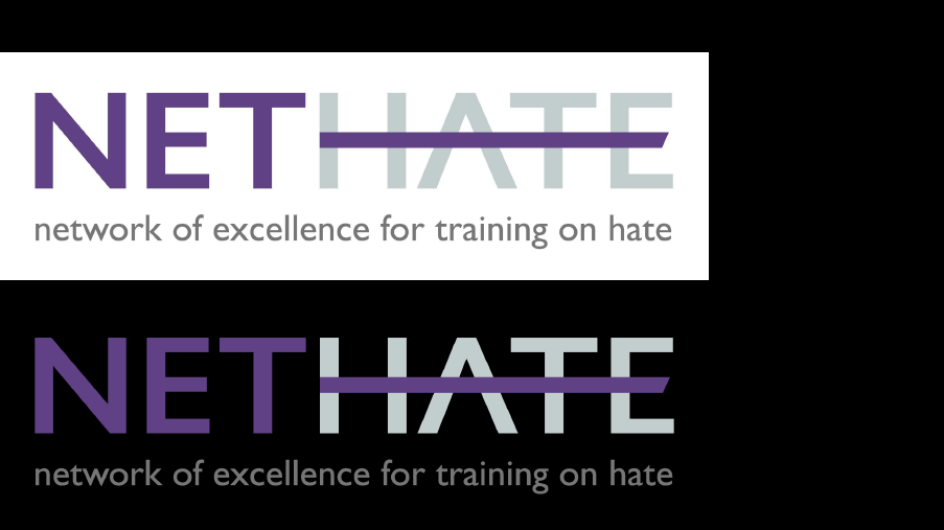NETHATE: understanding hate to foster social cohesion across the EU

The rise in online hate speech and offline hate crimes has caught the European Union to take action: with the Network of Excellence for Training on HATE (NETHATE), the EU funds 15 research projects across the Union involved with understanding the dynamics and spread of hate as well as mitigation strategies for victims and bystanders. In Germany, the Friedrich-Schiller University Jena (FSU) and the Institute for Democracy and Civil Society (IDZ) contribute to the research collaboration.
Hate Speech: a threat to peaceful coexistence in contemporary societies
For 4.6 billion people worldwide, the internet has become a regular part of everyday life. Unlimited access to information and high-speed communication around the globe have transformed the way we work, live, and communicate. Especially in the current pandemic, unfiltered content, circulating on online networks and reaching millions of people, has raised concerns about issues connected to disinformation, polarization, and the spread of group-related hatred. Christchurch, Halle, and El Paso present only a few examples of hate-motivated violent attacks that stand in correlation with online hate dynamics. Yet, the question of to what extent and by whom content needs to be regulated remains a topic of ongoing debate. Although efforts to legally regulate hatred content have evolved in the past years, there is no doubt that a comprehensive approach that goes far beyond legal regulation is needed to combat hate speech and hate crimes in the future. For that to be successful, the cooperation and exchange of actors from academia, civil society, politics, and tech companies are imperative to not only develop short-term intervention measures but also long-term solutions to preserve social cohesion.
Multidisciplinary research collaboration across the EU
NETHATE presents a special example for a European research collaboration: 10 universities and one nongovernmental organization (NGO) as the network beneficiaries and 14 partner organizations (among them 2 ministries, 2 companies, and 10 NGOs) are included. From its start in September 2020 until August 2024, the team will conduct research and training of 15 Ph.D. candidates, bringing in perspectives from various research disciplines to the subject. "Furthermore, the network will lead to sustainable integration of the different researchers and Ph.D. students. It will enable the learning from other disciplines and as an outcome have competent Ph.D. students with a broad theoretical and practical knowledge about the subject”, states Dr. Daniel Geschke from IDZ.
NETHATE will throw a light on not just different aspects of hate speech but also from different angles: we cover fields of neuroscience, law, criminology, artificial intelligence, psychology, communication, cultural and social sciences, and more.
Beyond the ivory tower: research and practice working hand in hand
Researchers are increasingly requested to transfer their findings into practice and contribute to resolving the societal issues they are examining. The criticism is widespread, that the gap between research and practice is too large, and results thus remain in the so-called ivory tower. It is therefore striking that the close cooperation of researchers and practitioners within NETHATE presents a crucial part of the project: each of the 15 research projects works closely with a partner organization from the practical field, expecting to enable easier use of research results for organizations and initiatives involved with hate speech. Furthermore, both researchers and practitioners shall benefit from constantly exchanging knowledge and experience with each other.
The expertise and perspectives from civil society can be used and implemented in research designs and vice versa. Research results can be implemented in practical approaches.
With FSU and IDZ, two research projects from Germany contribute to NETHATE
As participants of NETHATE, both research institutes develop an individual research project, following an individual research focus and aim: “We work at the Institute for Communication Science at the Friedrich Schiller University Jena. In collaboration with Das NETTZ, we aim to investigate hate speech in polarized political debates. The general goal is to link basic research on the dynamics of hate speech with an intervention perspective. We want to not only investigate how hate speech evolves in political debates but, ideally, also develop and evaluate a communicative intervention to address and mitigate hate speech in online fora'' summarizes Vladimir Bojarskich the project’s focus and aim at FSU and Das NETTZ. The IDZ, located in Jena as well, cooperates with the Mobile Beratung in Thüringen (MOBIT), a non-profit organization that offers support and advice in the fields of right-wing extremism, racism, and antisemitism. Their collaborative project will focus on understanding the relationship between online hatred and offline hate crime.
Overall, I expect a better understanding of online hatred, its causes, and its effects. Additionally, I expect the development of tools to measure and development of possible countermeasures against online hatred.
With the start of NETHATE, FSU and Das NETTZ elaborated a scheme and a model to categorize interventions against hate speech. Both will serve as the first overview of existing and possible countermeasures and be further advanced in collaboration with civil society initiatives. We are looking forward to three years full of exchange, insights, and creative ideas.

